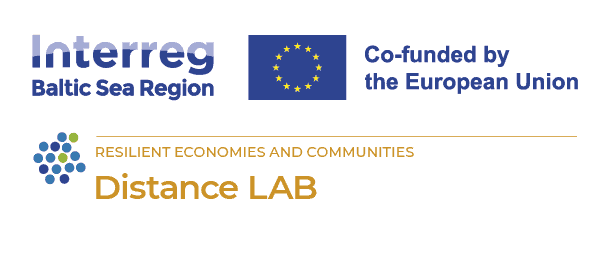
Embracing the Future of Remote Work: Insights from EuroDIG 2024
20 June 2024
The future of work is undoubtedly evolving, with a significant shift towards remote working, especially among younger workers. This trend, as highlighted at the recent EuroDIG conference in Vilnius, is not merely a passing phase but a fundamental transformation in how we approach our professional lives. At the heart of this transformation are the twin pillars of cybersecurity and worker welfare, essential for fostering a thriving and secure remote working environment.
As noted by Gytis Junevičius from the Lithuanian Innovation Centre and Leena Toivanen from Centria University of Applied Sciences and the Distance LAB team, the demand for remote work is particularly strong among younger workers. This demographic’s preference for flexibility and work-life balance means that remote working models will continue to be a staple of the modern workplace. However, as remote work becomes more prevalent, the need for robust cybersecurity measures and a supportive organizational culture becomes increasingly critical.
Creating a supportive and open organizational culture is not an overnight task; it requires sustained effort and commitment. However, small steps, such as fostering open communication and encouraging small talk among colleagues, can significantly contribute to a more positive emotional climate. This cultural shift is vital for both on-site and remote workers, helping to build a sense of community and trust that is essential for effective collaboration and security.
Gytis Junevičius emphasized the importance of this cultural foundation, noting that it plays a crucial role in enhancing cybersecurity. When employees feel supported and engaged, they are more likely to adhere to security protocols and less likely to fall victim to social engineering attacks. This blend of emotional well-being and security awareness creates a resilient workforce capable of withstanding cyber threats.
Irma Bagdonienė from Tech-Park Kaunas underscored the critical importance of cybersecurity in the remote working era. Effective cybersecurity measures are essential to protect against cyberattacks, safeguard business operations, and build trust with customers and stakeholders. As businesses increasingly rely on digital tools and platforms, the potential risks from cyber threats grow exponentially.
Bagdonienė’s insights highlight the need for comprehensive cybersecurity strategies that include regular training for employees, robust security protocols, and the use of advanced technologies to detect and mitigate threats. Cybersecurity is not just an IT issue but a fundamental component of business strategy that affects every aspect of an organization.
One key takeaway was the need to balance security concerns with employee well-being. Remote work can lead to isolation and burnout, making it crucial for organizations to implement measures that support mental health and foster a sense of connection among remote workers.
As we look to the future, it is clear that remote work will remain a significant aspect of our professional landscape. By prioritizing cybersecurity and cultivating a supportive organizational culture, businesses can not only adapt to this new reality but thrive in it. The insights from EuroDIG 2024 serve as a roadmap for organizations seeking to navigate the challenges and opportunities of remote work.





